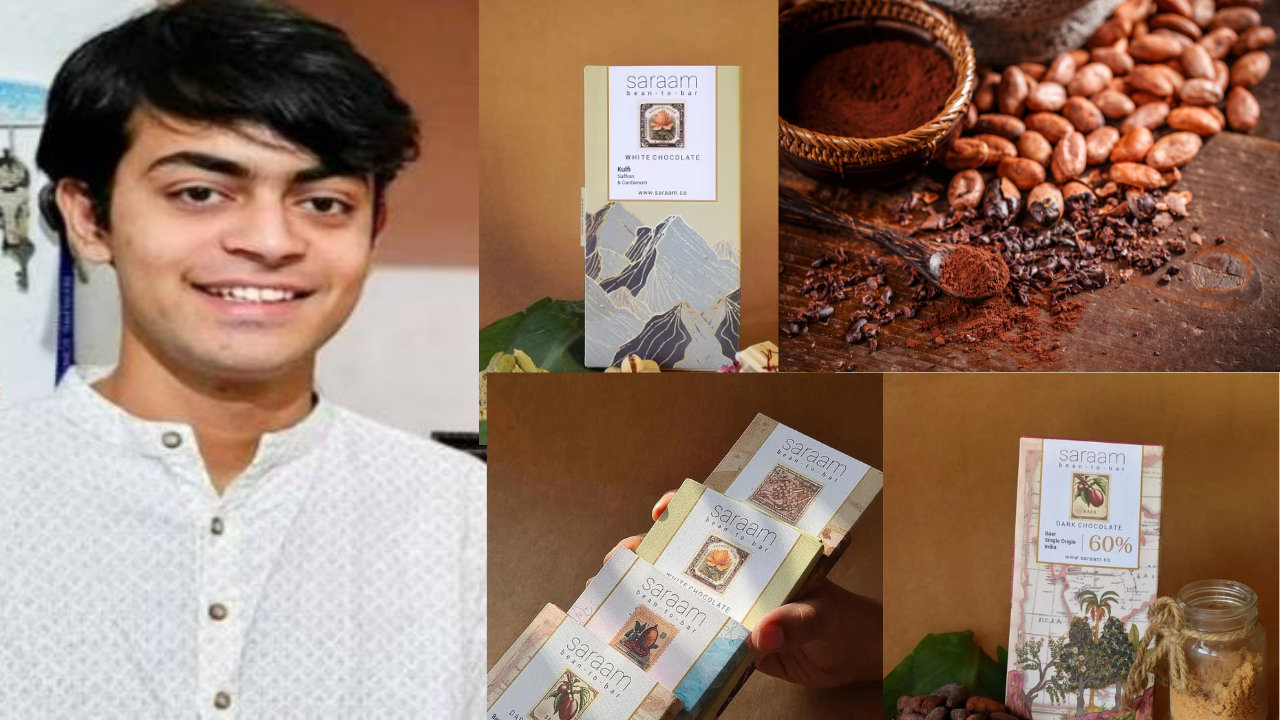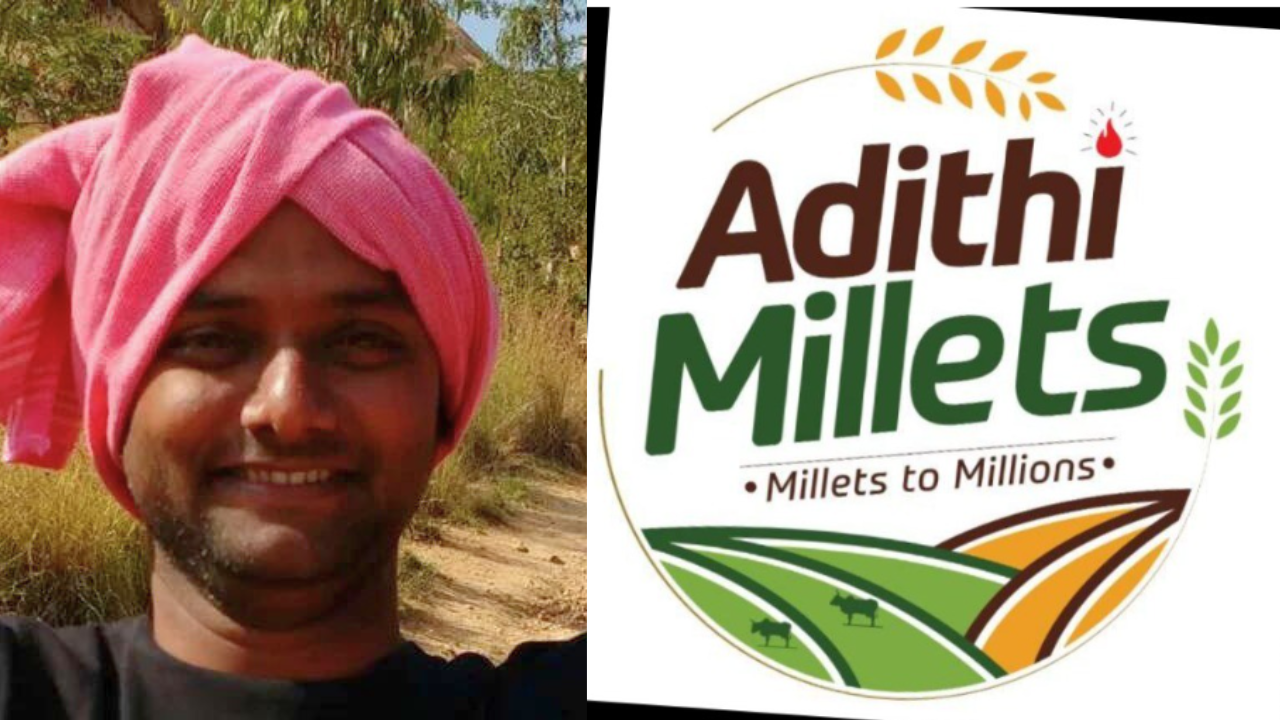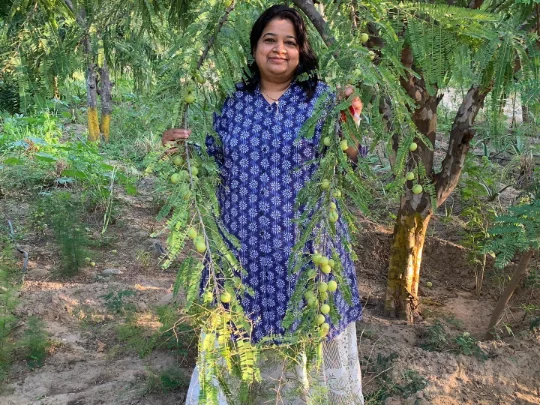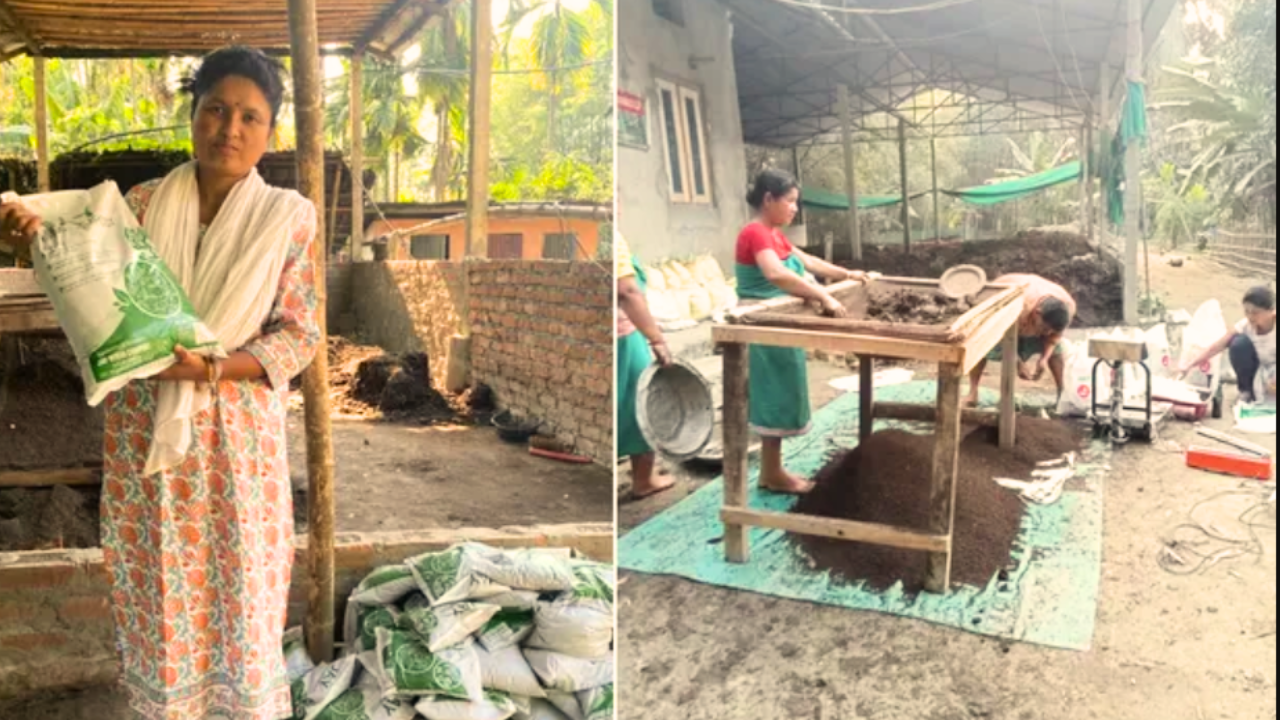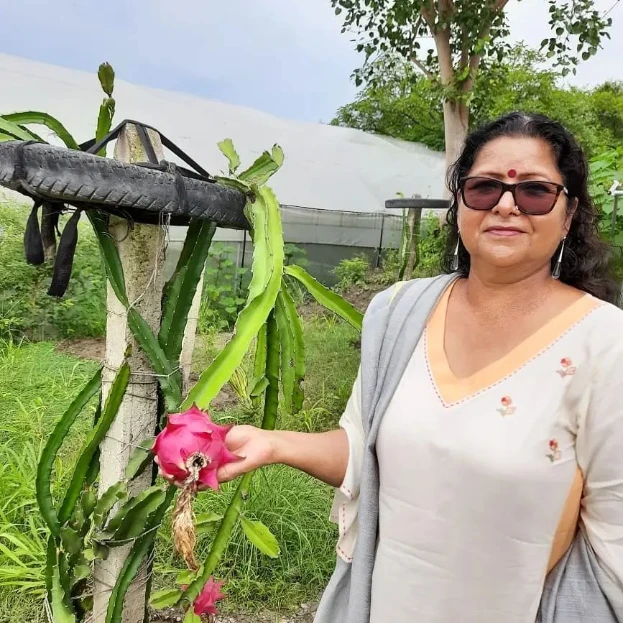Meet Kalyani Pandya, a 29-year-old who studied law and lives in Vadodara. She had a unique idea to add something special to the food lineup at her family’s business, Shankar Farms – natural ghee, which is clarified butter. Little did she know that this simple idea would lead the brand to incredible success.
Back in 2012, Shankar Farms was established under the guidance of Kalyani’s father, Vikram Pandya. He was both a part-time businessman and part-time farmer, driven by a strong passion for organic farming. Although the business had a group of loyal customers who loved their products, it wasn’t making significant sales or gaining much recognition.
During this period, Kalyani was in London pursuing her master’s degree in law. After completing her studies, she returned to India. After spending a year working in the corporate sector, she felt a different calling within her. So, she made the bold decision to quit her job and head back to Baroda. Back in her hometown, she started to delve into the family business and explore its potential.
A single product transformed the entire situation
“I noticed that there were several areas where we could make things better. Even though our business wasn’t making money at the time, I decided to give it a boost,” she explains.
Then, in 2019, Kalyani took the first step by deciding to create a distinct brand for their ghee and include it with their current lineup of products.
“I started selling our own branded ghee on Amazon and in various retail stores. I also ran online advertisements in 2020. The entire process, from my initial idea to having the product available for purchase, took about a year and a half,” she shares.
Looking back, Kalyani realizes that she entered the market at a favorable moment when many people were turning to organic products due to the pandemic. “When combined with the unique packaging, our key selling point, and the way I presented the brand, we really stood out compared to other options on the market.”
The response they received from customers was amazing, she recalls.
“Before this venture, we were already involved in organic farming and dairy work. We have a herd of over 100 cows and have been utilizing cow dung as a natural fertilizer. We’ve always focused on sustainable practices. The main change this time was deciding to brand the ghee,” she points out.
However, she adds that they needed to address certain aspects to attract consumers.
“In my view and based on my experience growing up in a farming community, Gir cows are preferred for ghee because people believe their creamier milk and richer aroma make the best ghee. However, alongside Gir cows, we also raise Kankrej and Lal cows. So, appealing to a market that believed only Gir cows were suitable for ghee was challenging. But we chose honesty as our best approach,” Kalyani says, highlighting that this honesty turned out to be advantageous.
“I believe that once people started trying our ghee, they really enjoyed it and their perceptions gradually changed. Some even say our ghee tastes better than certain brands that exclusively use Gir cow milk. This superior quality ghee is the result of the organically grown feed we provide our cows,” she explains.
One of their customers, Shankar Bhatt, confirms this. “I bought this ghee for my mother, who was looking for A2 cow ghee with a good texture and natural yellow color. My mother really liked this product, and I’ll be purchasing another bottle as soon as this one runs out!”
Another step that Kalyani took was having the cows undergo lab testing to confirm them as A2 cows. “This process involves testing the blood samples of the animals, which then determines whether they are classified as A1 cows (those of Western origin like Holstein, Jersey, etc.) or A2 cows (indigenous breeds known for superior milk quality according to studies). This certification played a significant role in improving how I marketed my products,” Kalyani explains.
Creating a dream rooted in organic ideals.
Presently, Shankar Farms is thriving with not just dairy production, but also growing various types of vegetables. A team of 12 farmers collaborates on a three-acre piece of land. Kalyani, one of the farmers, explains that they cultivate enough crops to meet their own needs, and any surplus is shared among the staff.
Their product range includes items like fenugreek, ladyfinger (okra), ivy gourd, green flat beans (papdi), rice, wheat, pearl millet (bajra), chickoo, guava, pears, and more. Kalyani also mentions that they sell additional products like vermicompost and incense sticks.
In Vadodara, they offer unpasteurized milk that remains fresh for about three hours after milking. Kalyani mentions, “We currently provide this milk to 60 households from our manufacturing unit located in the Anand district. The ghee we produce is sold in cities like Mumbai, Delhi, Bengaluru, Hyderabad, and Ahmedabad. We manage to sell around 50 liters of ghee every month.”
In the previous financial year, the brand achieved a turnover of Rs 15 lakh.
Reflecting on their journey so far, Kalyani expresses her gratitude. She believes that when one has life’s basic comforts, it’s meaningful to reconnect with one’s roots. She finds a lot of satisfaction in staying connected with nature and aiding others in earning through their farming venture. When questioned about her decision to leave London and return to her hometown, she responds, “It wasn’t an obligation, but a choice. I believe in this path.”
Kalyani acknowledges that while her work brings satisfaction, it’s not always glamorous. Balancing her responsibilities as a 29-year-old, she sometimes wishes to go out on a Saturday evening but can’t due to farm commitments. Nonetheless, being on the farm brings her significant contentment. She took the leap into organic farming, recognizing that it’s a gradual process.
While she didn’t initiate the company, Kalyani played a pivotal role in its growth. She says, “It’s disheartening to hear about a cow having health issues. It feels very personal now.” Overall, Kalyani concludes that the journey has been an incredible one.


